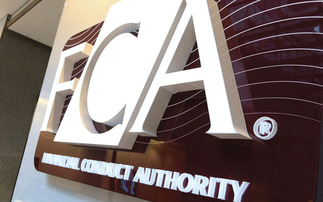Richard Walsh sees an opportunity to grow IPMI solutions in a ‘complex' UK health system
There have recently been reports that people coming to the UK from outside the EU will have to pay for A&E services.
At the time of writing the government has not published detailed proposals.
[Editor's note: Since this piece was written, the government has confirmed a consultation - further reading HERE.]
Whatever transpires, there is an opportunity at the moment to argue for IPMI solutions and to grow the market. Such systems operate in many other countries.
Currently, the English system is very complex and has arisen gradually over a number of years: see "guidance on implementing overseas visitor hospital charging regulations 2105" for full details.
For EU (and Swiss) residents the situation is pretty straightforward as they have an EU health card which entitles them to access the NHS.
The NHS then bills their country of origin for the cost of treatment. The bill is set using the NHS National tariff, which is a list of treatments with a set cost.
Where things get much more complicated is for people from outside the EU. Some people are exempt from charges.
This can be because they come from a country with a reciprocal agreement with the UK, and it varies what the exemptions are depending on which country it is. Others because of their status here (for example, asylum seekers.
And others because of the nature of their illness (for example the treatment of infectious diseases. Assuming the person is not exempt, people are divided into two groups.
The first group is those who have a visa of six months or longer, such as international students. These people pay an annual fixed charge of £200 for ‘free' access to NHS services, as part of part of their visa application process, to the Home Office.
I suspect this money goes straight to the HMT pot, rather than to the NHS. As such, hospitals with higher usage by such individuals lose out. When the visa is issued the Home Office links the information with the NHS IT spine, so the hospital can identify them and not charge for treatment.
The second group is people who stay in England for less than six months, for example tourists. They pay no visa surcharge for health.
Instead, they are liable for the cost of NHS services based on the treatment they actually receive here, and the hospital they get their treatment from gets the cash.
But actually, they get more because the amount these people are charged is 150% of the NHS tariff. Quite a large profit margin.
If they have IPMI they may be able to pay the bill using it direct or they may have to be reimbursed from their insurance provider. Those who do not have IPMI are self-pay (assuming the NHS can get the money off them).
Given that the Home Office and NHS already have an IT system that shares information for those who pay the surcharge there must be scope for simplifying the system for all those who are not from the EU or exempt from charges. The obvious solution would be to treat them all in the same way and require them to have IPMI.
The government could make regulations on the scope of IPMI coverage, as happens for example in Dubai. Compliant products could then be purchased at the same time as the visa application.
For the NHS there would be three benefits. First, it would be easy to identify everyone who is liable to pay. Second, they would get their money (and profit) and third the money would go straight to the hospital (not HMT).
The time could be right for a discussion with Government on reforming the current complex system.
Richard Walsh is a fellow at SAMI Consulting
Further reading
Non-EU patients should pay for A&E and some GP services - gov












